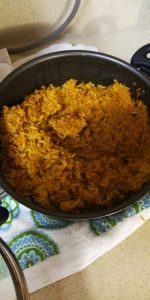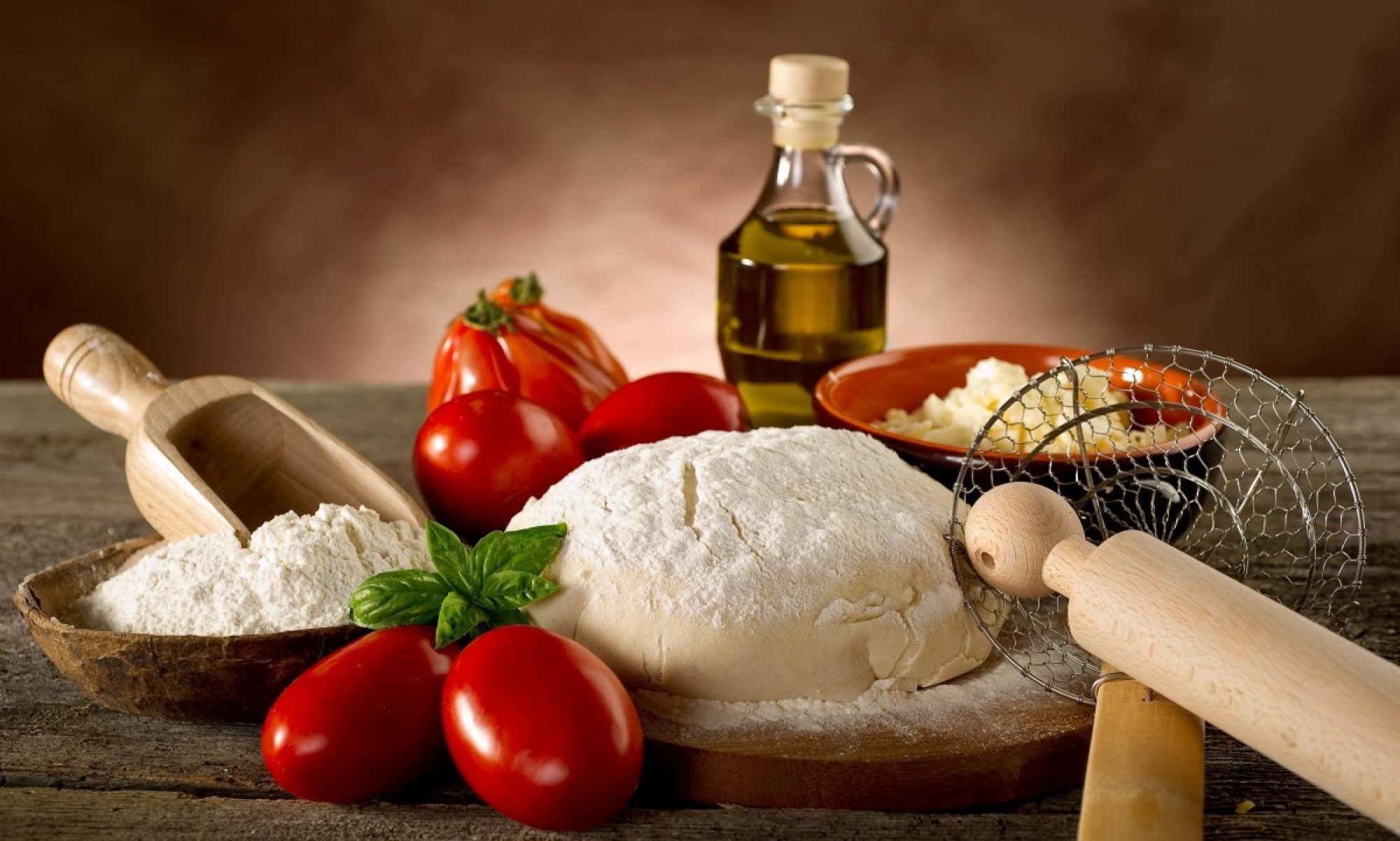Jollof rice is a very special dish among my family. My family is part of the Yoruba tribe in Nigeria. A significant part of Nigerian culture is celebrating achievements and milestones in a big way. These celebrations could be a baby naming ceremony to a graduation party to a traditional wedding. These events usually involve traditional music, dancing, and food. The food at these celebrations are essential and it is expected to have more than enough for everyone. These events can have from 50 to 100s of people. Therefore to have enough food to accommodate everyone, huge pots of food are made days in advance. One of the main dishes at any Nigerian celebration includes jollof rice. 
I like jollof rice a lot because it has a lot of strong flavors and it’s spicy. When I think of other rice dishes there aren’t many that I have that I could eat that the main part of the entree is the rice. I think because of my enjoyment of having this dish makes me look forward to having dinner with my family. It’s also one of the few dishes that my mom, my sister, and I would make together. The times when we would prepare jollof rice together were a really good bonding time for us. We would play music, dance, and reminisce. Even now as I make the dish on my own I would invite my friends and do the same thing. Jollof rice is a very important dish to me because it brings people together.
Jollof rice is a dish made throughout West Africa. Each country prepares the dish slightly different but they all have the same essential ingredients: rice, tomatoes, peppers, onions, and broth. The name of the dish Jollof is derived from the Wolof ethnic group in Senegal, Gambia, and Mauritania. The origin of the dish is still highly debated but researchers think it originated from Mali. Though jollof rice might have originated elsewhere the biggest countries known to be the home of jollof rice is Nigeria and Ghana. In Nigeria, jollof rice is served as a main dish at events along with plantains, meat, and vegetables. In Ghana jollof rice is served with spaghetti, plantains, and vegetables, shito, and meat.


Hi, Nikki, thanks for sharing with us your favorite memories of Nigerian jollof rice. I was lucky enough to have this one-time experience with jollof rice made by a Nigerian friend. It was so delicious! Your introduction paragraph does such a good job of introducing us to some important elements of Nigerian culture and tradition. I’m glad that this rice has served as a strong tie between you and your family. I wonder if you could probe deeper into its impact upon your personal identity. Would you say jollof rice has influenced your understanding of yourself and your family and culture, and in what ways? Would you continue to allow or even welcome such an impact? What about in the future? The research paragraph is informative, but I still have this one question about the origin of jollof rice–how did it come into being? What cultural and geographical factors have prepared its invention?